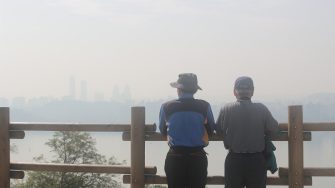
Institute investigators have been awarded a collaborative grant from the Built Environment and Prevention Research Scheme, a joint program between the UK and Australia’s National Health and Medical Research Council (NHMRC).
The project, led by colleagues from the University of Newcastle-Upon-Tyne in the UK, will allow the team to build a knowledge base on the impact of the environment and pollution on cognitive health.
Institute Investigator Professor Ester Cerin from the Mary McKillop Institute for Health Research at the Australian Catholic University was awarded $681,240 in the Australian component of the grant and will lead the Australian side of the project along with Institute Director, Professor Kaarin Anstey, Professor Perminder Sachdev, and others.
Environmental data will be linked to existing studies on ageing and brain health to examine how the built environment of a person’s neighbourhood, natural environment, air pollution and noise may impact on cognitive decline and the risk of dementia in older adults.
How the environment affects cognitive health and ageing is an area of growing academic and public concern. The development of comprehensive risk reduction strategies for cognitive decline and dementia is crucial as countries across the globe face growing ageing populations and increasing rates of dementia.
By incorporating existing datasets and capturing new data from both the UK and Australia, the study will provide a global perspective on the issue and identify factors common across the world as well as local factors that we should be aware of in relation to the environment and dementia risk in our populations.
The team aim to identify population-level interventions that target modifiable environmental factors and contribute to the development of policies for public health, urban planning, transportation and environmental protection.
The research is a perfect example of the commitment of the UNSW Ageing Futures Institute to research translation and making a visible and positive impact on ageing, both nationally and internationally. It also provides a unique opportunity to develop the next generation of environmental ageing epidemiologists with interdisciplinary skills and international mentorship.
